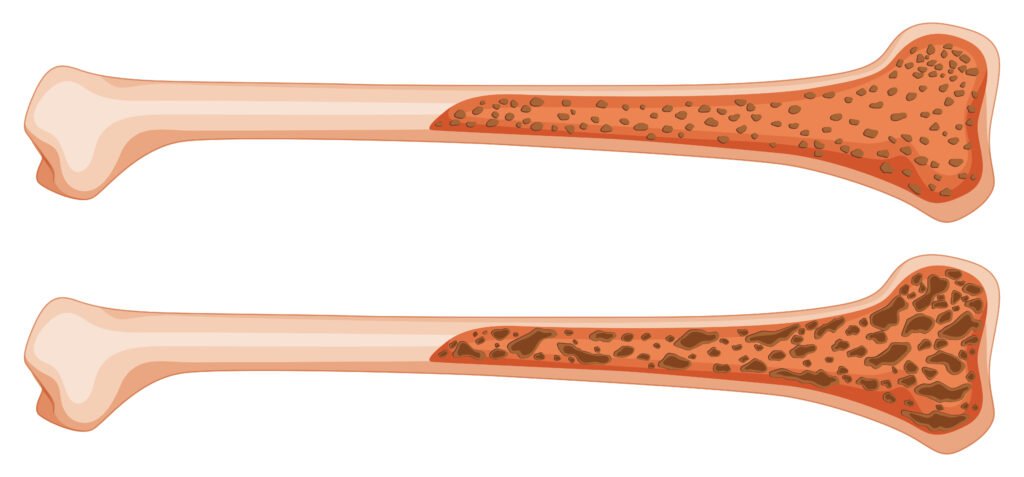What is Osteoporosis?
Osteoporosis is a medical condition that leads to weak and fragile bones. In this condition, the bones gradually become so weak that they can easily break under the slightest of stresses like suddenly bending or coughing. Hence clearly this is a severe medical condition which is why people suffering from it usually have a doctor on call 24*7. The main cause of osteoporosis is a reduction in bone mass. In a young person new bone is constantly being created however with ageing bone is lost faster than it’s created. This leads to low bone mass and eventually brittle bones. This is why increasing age is the most common factor that increases the risk of developing osteoporosis even though factors like race and family history can also have an impact. Hence elderly people are most prone to osteoporosis.

What are the symptoms of Osteoporosis?
In the early stages of osteoporosis when the bone mass starts depleting there are very few signs. However, you should go see a doctor or if you have mobility issues then arrange for doctor home visits in the following cases as they indicate an advanced case of osteoporosis:
- Loss of height with time
- Posture bending forward
- Fracture in vertebrae
- Bones start to break easily even in minor accidents
How to find out if you have Osteoporosis?
The symptoms of osteoporosis become fully developed gradually. However, if you observe the early stages of the symptoms mentioned above you should immediately consult a doctor. Additionally, if your symptoms are more advanced and you don’t want to risk going out of the home you could opt for an emergency doctor consultation at home in Bengaluru or Mumbai or wherever you are living at the moment. Based on a preliminary analysis your doctor may recommend any of the following tests to measure your bone density and its mineral content:
- CT scan
- X-Rays
- Bone density test
- Ultrasound
Can you reduce or prevent Osteoporosis?
Generally, osteoporosis is commonly associated with ageing. Hence, when you think about preventive measures that will decrease the risks of osteoporosis or minimize the effect of osteoporosis in people who are already affected by it you need to think about the factors that are common in the elderly.
- Calcium
Low bone density is the central cause behind osteoporosis and people who are already suffering from osteoporosis suffer from low bone density and calcium deficiency. Hence elderly people should have sufficient calcium intake. Some of the good sources of calcium include:
- Dairy products especially those that are low fat. This includes things like cottage cheese, milk or yoghurt.
- Soy products like Soy nuts, tofu, tempeh
- Green leafy vegetables like kale, swiss chard, broccoli, spinach, broccoli
- Vitamin D
There is a strong link between vitamin D since it improves the ability of the body to absorb calcium. This is crucial because if your body is not able to absorb calcium in the right amounts then it won’t matter how much milk you drink. When it comes to vitamin D the obvious go to source is the sun. However, you can also include many different kinds of fish to increase your vitamin D intake.
- Exercise
Exercising is one of the best ways to increase your bone density. While young people can do all kinds of exercises the elderly need to be more cautious about which exercises they do. For this, you can consult with various fitness and exercise experts who have knowledge about it.
Conclusion
Osteoporosis can affect anyone regardless of age, gender or ethnicity. However, it goes without saying that it impacts the elderly the most. This is not just because they are more prone to it but also because in old age even the simplest of activities seem difficult and on top of that if a person also has osteoporosis then life can get really difficult. However, there are steps you can take to make the life of elderly people suffering from osteoporosis in your family easier. For instance, you can opt for home health care services offered by reliable companies like Janavaidya in Bangalore, Mumbai and other major cities for constant care. Even if the disease has not fully developed you should always keep a close watch if the symptoms are growing and routinely consult with a doctor.
